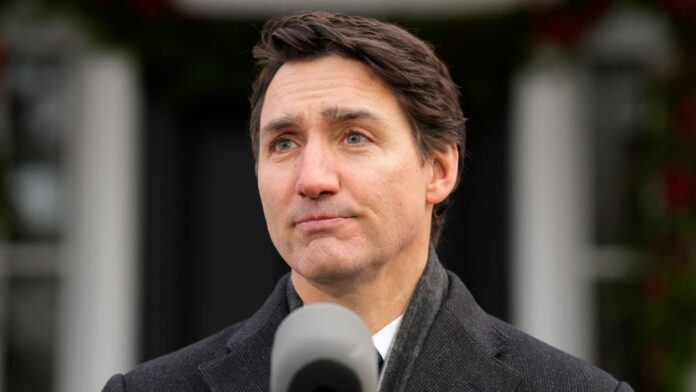Canadian Prime Minister Justin Trudeau announced his resignation as the leader of the Liberal Party and Prime Minister, citing internal conflicts and parliamentary paralysis as key reasons. His tenure, marked by nearly a decade of leadership since 2015, is coming to an end as the Liberal Party begins its search for a new leader.
Singhvi’s Remarks on Trudeau’s Tenure
Reacting to the news, Congress MP and Rajya Sabha member Abhishek Singhvi criticized Trudeau’s leadership, calling his policies “foolish” and his stance on radical elements “soft.” Singhvi expressed hope that Trudeau’s resignation would improve Indo-Canada relations, stating on X:
“Justin Trudeau’s resignation is a much-needed change for Canada and its global relations. His tenure was marked by foolish policies at the domestic front and a soft stance on radical elements. We hope his exit paves the way for stronger, more respectful Indo-Canada relations.”
Trudeau’s Announcement Highlights
In his resignation speech, Trudeau emphasized the challenges of leading amidst internal party conflicts and the longest parliamentary session in Canadian history. He stated:
“If I have to fight internal battles, I can’t be a good candidate. This country deserves a real choice in the next election, and it has become clear to me that I cannot be the best option.”
The Prime Minister has asked the Governor General to prorogue Parliament until March 24, giving the Liberal Party time to select its next leader and prepare for a new parliamentary session.
Reflections on Leadership and Family Support
Trudeau credited his family for their unwavering support throughout his career, sharing that his decision followed deep reflection over the holidays:
“Over dinner last night, I told my kids about the decision I am sharing with you today. Any success I have personally achieved has been because of their support.”
Challenges During Trudeau’s Tenure
- Domestic Criticism: Trudeau faced increasing scrutiny for his handling of domestic issues, including housing, healthcare, and economic challenges.
- Parliamentary Paralysis: His government struggled with legislative gridlock, leading to one of the longest parliamentary sessions in Canadian history.
- Foreign Policy Strains: Relations with India and other nations experienced tension, partly due to Trudeau’s perceived leniency towards extremist elements.
Potential Successors
As the Liberal Party searches for its next leader, several high-profile candidates have emerged:
- Anita Anand: Minister of National Defence.
- Chrystia Freeland: Deputy Prime Minister and key economic strategist.
- Mark Carney: Former central banker with extensive financial expertise.
Significance of Resignation
Trudeau’s departure signals a turning point in Canadian politics. His leadership, once celebrated for bringing a fresh, progressive perspective, became overshadowed by mounting political and economic challenges.
What’s Next for Canada?
The Liberal Party faces a critical moment as it seeks a leader capable of addressing pressing national and international concerns. The transition period and upcoming elections will likely define Canada’s political and economic trajectory for years to come.
Trudeau’s resignation has sparked a mix of criticism and optimism, with leaders like Singhvi calling for stronger bilateral ties and a shift in policy direction under new leadership.


